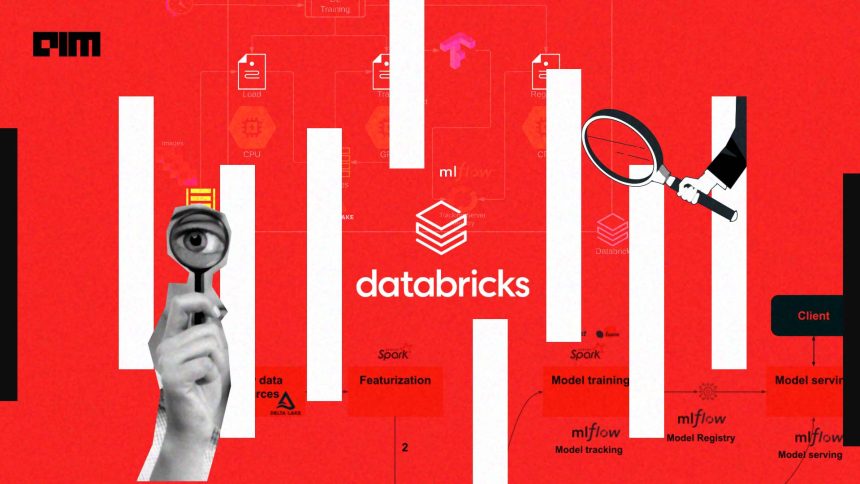Data Lakehouse Platforms rely on rapid, high-quality data ingestion for their value, and Arcion’s acquisition would solve these issues.
In a move aimed at transforming data replication technology, San Francisco-based Databricks announced the acquisition of Arcion, a leading real-time enterprise data replication solutions provider. This strategic acquisition, valued at over $100 million, will help Databricks streamline how enterprises ingest data from various sources into the Databricks Lakehouse Platform.
Data Lakehouse Platforms have become a cornerstone of enterprise data and AI solutions, but their value hinges on the quality and speed of data ingestion. Ingesting data from existing databases and applications has been a persistent challenge, characterised by complexity, fragility, and high costs. The acquisition of Arcion is a game-changer, as it equips Databricks to provide a seamless, scalable, and cost-effective data ingestion solution for a multitude of enterprise data sources.
Recent surveys have indicated that many businesses grapple with managing multiple, often siloed data systems. In fact, 34% of surveyed organisations reported dealing with ten or more systems, while over 80% of large companies juggled a similar data complexity.
Vital data resides not only in traditional transactional databases like Oracle, MySQL, and Postgres, but also in cloud-based SaaS applications such as Salesforce, SAP, and Workday. Leveraging Arcions’ change data capture (CDC) engine, which offers connectors for over 20 enterprise databases — such as Oracle, MySQL, and Postgres — and data warehouses from the likes of Salesforce, SAP, and Workday. This would streamline the process of continuous or on-demand data ingestion into the Databricks Lakehouse Platform. Crucially, this integration would also bolster enterprise security, governance, and compliance, thus limiting concerns about data integrity.
Ali Ghodsi, Co-Founder and CEO at Databricks, highlighted the significance of this acquisition, stating, “To build analytical dashboards, data applications, and AI models, data needs to be replicated from the systems of record like CRM, ERP, and enterprise apps to the Lakehouse. Arcion’s highly reliable and easy-to-use solution will enable our customers to make that data available almost instantly for faster and more informed decision-making,” he said.
He added that Arcion will be a great asset to Databricks, and he is excited to welcome the team and work with them to further develop solutions to help his customers accelerate their data and AI journeys.
Gary Hagmueller, CEO of Arcion, emphasised how Arcion’s real-time, large-scale CDC data pipeline technology complements Databricks’ existing ETL solutions. “Databricks has been a great partner and investor in Arcion, and we are very excited to join forces to help companies simplify and accelerate their data and AI business momentum.”
Not long ago, Databricks had acquired MosaicML, a multi-cloud platform, in a deal worth a whopping $1.3 billion, with a vision to democratise AI by helping enterprises build, own and secure best-in-class AI models. MosaicML, known for its MPT large language models, also offers a cost-effective way for enterprises to build and train custom models using their data.
With a host of these acquisitions and technology bolstering, Databricks has positioned itself as a leading platform for enterprises to build and scale their very own generative AI models.
Databricks’ ability to maintain its share price and increase its valuation in the midst of market challenges is a testament to its strength in the data analytics and AI sectors, positioning it as a key player in these rapidly evolving industries. Its timely and well-thought-out acquisitions have helped it.
Unlike many enterprise software companies that are cutting back due to slowing growth and reduced consumer spending, Databricks has not announced any layoffs and is actively maintaining its growth trajectory.
Databricks’ CEO, Ali Ghodsi, has focused on cost-cutting measures in technology expenses, including software subscriptions.
“We spent $30 million on 300 pieces of SaaS software,” Ghodsi said, “I said, ‘Let’s halve that,'” he added.
In the quarter ending in July, Databricks reported an impressive $1.5 billion annual revenue run rate, with sales increasing by 50% year over year. This is in stark contrast to some of its competitors, like Snowflake, which, despite being a prominent player in the cloud software industry, reported 36% growth in the latest quarter, with revenue reaching $674 million.
Moreover, the San Francisco-based data analytics software company had recently raised more than $500 million in fresh capital. This funding round pushed the company’s valuation to an impressive $43 billion, up from its previous valuation of $38 billion in 2021.
What’s remarkable about this valuation increase is that it comes at a time when the cloud software industry has faced significant challenges. Many tech startups have looked to the IPO market for funding, but Databricks has opted to stay private and has continued to attract investors.
In this latest funding round, Databricks issued shares at a price of $73.50 each, which is roughly the same price at which they were valued in 2021. The $5 billion increase in valuation is mainly attributed to the issuance of new shares. Databricks CEO Ali Ghodsi mentioned that a significant portion of these new shares went to the company’s rapidly growing workforce, which has expanded to approximately 6,000 employees, with around 3,500 hires in just the past two years.
Despite challenging market conditions with high interest rates and economic concerns affecting some tech companies, Databricks has capitalised on the growing momentum in the field of artificial intelligence. In July, the company made a notable acquisition by purchasing MosaicML, a startup specialising in software for efficiently running large language models that generate natural-sounding text. The acquisition was valued at $1.3 billion, indicating Databricks’ strong commitment to AI innovation.
Moreover, a significant development in this funding round is the participation of NVIDIA as a new investor in Databricks. Nvidia, known for its advanced graphics processing units (GPUs), has actively invested in various AI infrastructure startups. This investment in Databricks is consistent with Nvidia’s strategy of supporting companies involved in AI development, and it underscores the growing importance of AI in the tech industry.
With Microsoft being in a key position in the generative AI landscape, Databricks’ partnership to offer its services on Azure Databricks will also prove to be a key component in its growth.



